In the SEO domain, the Google algorithm raises or decreases the rank of a website. The Google algorithm is updated very quickly during a year, so you might not take into account the small updates.
>Share this post<
by Irina Ciutaco
December 16, 2020
In the SEO domain, the Google algorithm raises or decreases the rank of a website. The Google algorithm is updated very quickly during a year, so you might not take into account the small updates.
SEO is a very complex domain, so new areas of SEO such as structured data and local search optimisation are developing day by day.
As 2021 is near, today we’ll discuss the 7 most important SEO trends that retailers and brands need to make note of in order to stay ahead of the competition.
SEO is a very complex domain, so new areas of SEO such as structured data and local search optimisation are developing day by day.
As 2021 is near, today we’ll discuss the 7 most important SEO trends that retailers and brands need to make note of in order to stay ahead of the competition.
1. New user experience will influence rankings
The notion of Core Web Vitals was made known in May 2020. According to that, three new metrics will be introduced in the way Google measures user experience. As you probably know, speed is a very important ranking factor, so the three metrics are all about speed loading, interactivity and loading time.As Google has stated in recent months, Core Web Vitals will become official ranking signals in May 2021. Therefore, these 3 metrics will make the distinction between two pages with fairly relevant content, of complementary quality and authority to acknowledge which of these two pages will have a higher rank.
Moreover, Core Web Vitals will play an important role for those pages that show up in Google’s Top Stories and the opportunity will be there for all pages that have a high optimization score.
On top of this, Google is also taking into consideration an attribute to mark search results with a good user experience.
How to optimise:
Core Web Vitals can be measured thanks to a great number of tools that Google is providing for web developers: Page Speed Insights, Chrome UX Report, Search Console, Chrome DevTools, Lighthouse and Web Vitals Chrome Extension. The majority of these tools provide suggestions on how to improve each metric.
2. Mobile-first indexing will be mandatory for all websites
Back in 2016, Google was beginning to force websites to use mobile-first indexing, which favoured the mobile version instead of the desktop one.
It turns out that it has been a moderating process. Google was investigating if each website was mobile-ready and made the change in the case that the website passed the test.
Coming back to the present, in case there are still websites that couldn’t haven’t adapted to a mobile version, Google will force them into mobile-first indexing. This transition is scheduled for March 2021.
How to optimise:
In case you have a website that is not mobile-ready yet, check out this list made by Google, which contains everything you need to take into account when making the transition.
3. Local SEO will become more complex
Over the last few years, Google used to make recommendations about local businesses that were in the vicinity of the searcher. Recently, Google has increased the importance of quality and relevance, by providing these tools.Google My Business is frequently updating its listings, allowing businesses to answer questions, add products and services, offer reservations and provide messaging. The most important thing is that the listings have become so proficient, that as a user you are not obliged to visit the actual website anymore.
In 2020, when Covid-19 happened, Google managed to provide the listings with extra options. As a business owner, you can evidentiate your business temporarily closed, add different business hours and switch on special attributes to maintain safety options:
How to optimise:
By optimising your GMB listing. Search all the features that GMB has to offer (posts, Q&As, attributes) and pay attention to your reviews.
4. Artificial intelligence will dominate all search
Artificial intelligence (AI) began its journey in the SEO world in 2015 with the RankBrain algorithm and expanded its power thanks to BERT in 2019. In a year, BERT became very popular, as it was used in almost 100% of all English language queries.
In such a short time, BERT proved to be incredibly successful in identifying the proper intent of a query. Lexical ambiguity, learning new words, correcting misspellings, finding synonyms, are just some of the features that BERT has. On top of this, BERT is the algorithm that is known for the passage indexing feature. If you’re wondering what passage indexing is, you should know that BERT can pull a compatible passage from an irrelevant page :
How to optimise:
As we have stated above, BERT has a genuine understanding of the natural terminology, so you don’t need much assistance from an SEO point of view. What you need instead is to practice good writing skills, if you have them.
5. Structured data will be necessary
Even if theoretically structured data is not really a new trend, its purpose is to generate rich snippets, mandatory if you want to rank for things like recipes or news articles:Another feature that structured data can be used for is local SEO. There is a sort of schema called ‘’local business’’, which grants you to add your company, its address and key contact details. If implemented on your website, local schema tells Google where your business is at and improves your chances of showing up in local search results.
How to optimise:
Even if structured data seems like something quite difficult to manage on your own, it is not. Structured data are bits of HTML, to sum up some of your content. You can do this manually or you can add a Structured Data Markup Helper to do it for you. In case you need more information, examine our structured data guide.
6. EAT factors are still in the game
Expertise, authority and trustworthiness (EAT) factors are questionable subject in the SEO world. Over time, there were various opinions about EAT, whether it is a ranking factor or whether it is even worth being measured by Google with its algorithm.In reality, Google cannot respond to many of the EAT questions in a direct way. It simply cannot assure that the information is authentic or even if the author is an expert.
What Google is able to check are the indirect EAT signals. For example, if a certain page is introducing all the right entities associated with the topic, it means that it is authentic.
7. Google will do its best to satisfy the intent
As we have discussed previously, Google can reclaim small pieces of content to satisfy the exact intention of the user. For example, if you are typing a certain question in Google SERP, Google will pull up the correct paragraph answering your question and you don’t need to visit the page.
This is very important for SEO as, in this way, more and more queries will be answered.
Conclusion:
To sum up, to run a successful SEO campaign in 2021, you need to create good content, pay attention to the technical aspects such as structured data and keep up to date with the latest Google algorithms.More to explore
In the next few years, we are foreseeing an impressive increase for the global retail industry. While this can be beneficial for the global eCommerce industry, it also means that there will be more competition, as well.
European Data Protection rules were launched back in 2018, to protect the confidentiality of our personal data but even four years later, there is still a lack of understanding among companies and consumers about how to comply with the best practices. Big tech companies, like Google or Amazon, usually refer to the acronym GDPR, to explain the rules that verify the data, so it is not used inappropriately, but to add details to create confusion.



